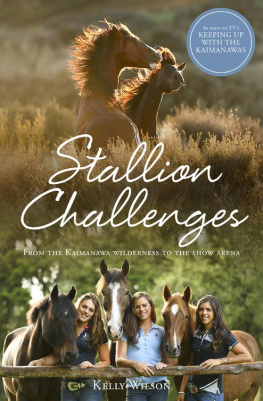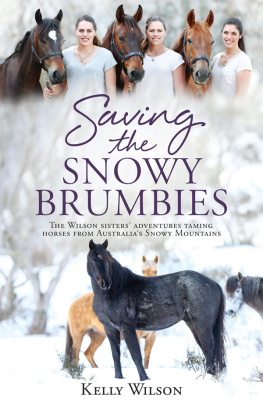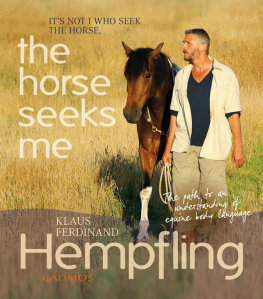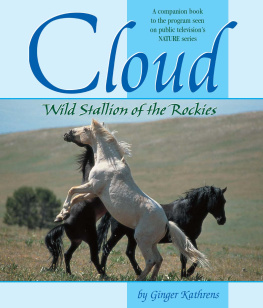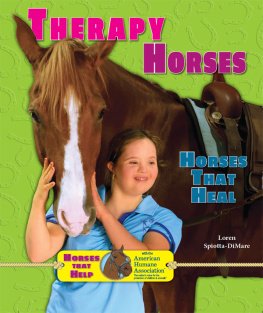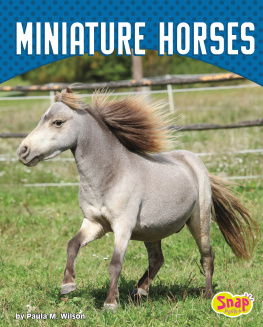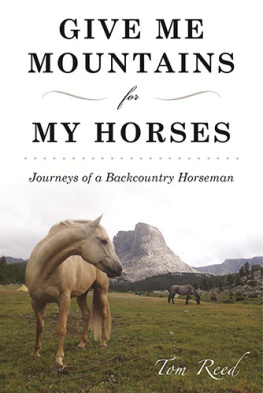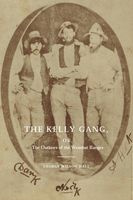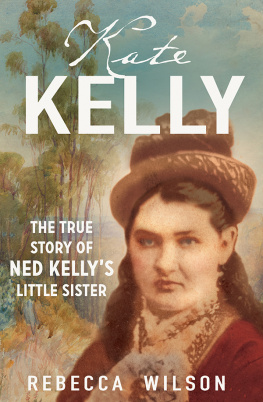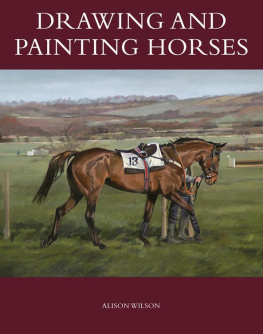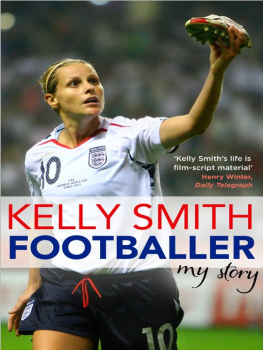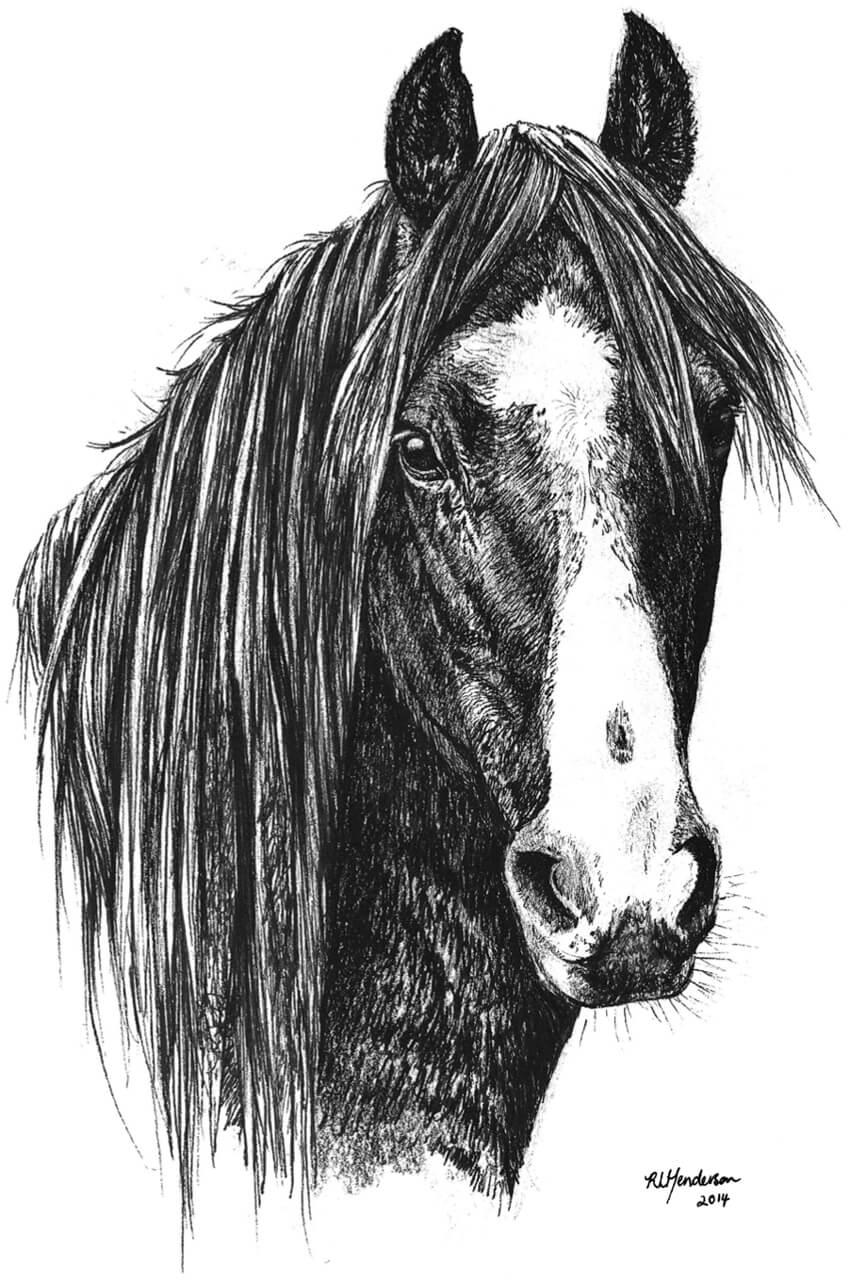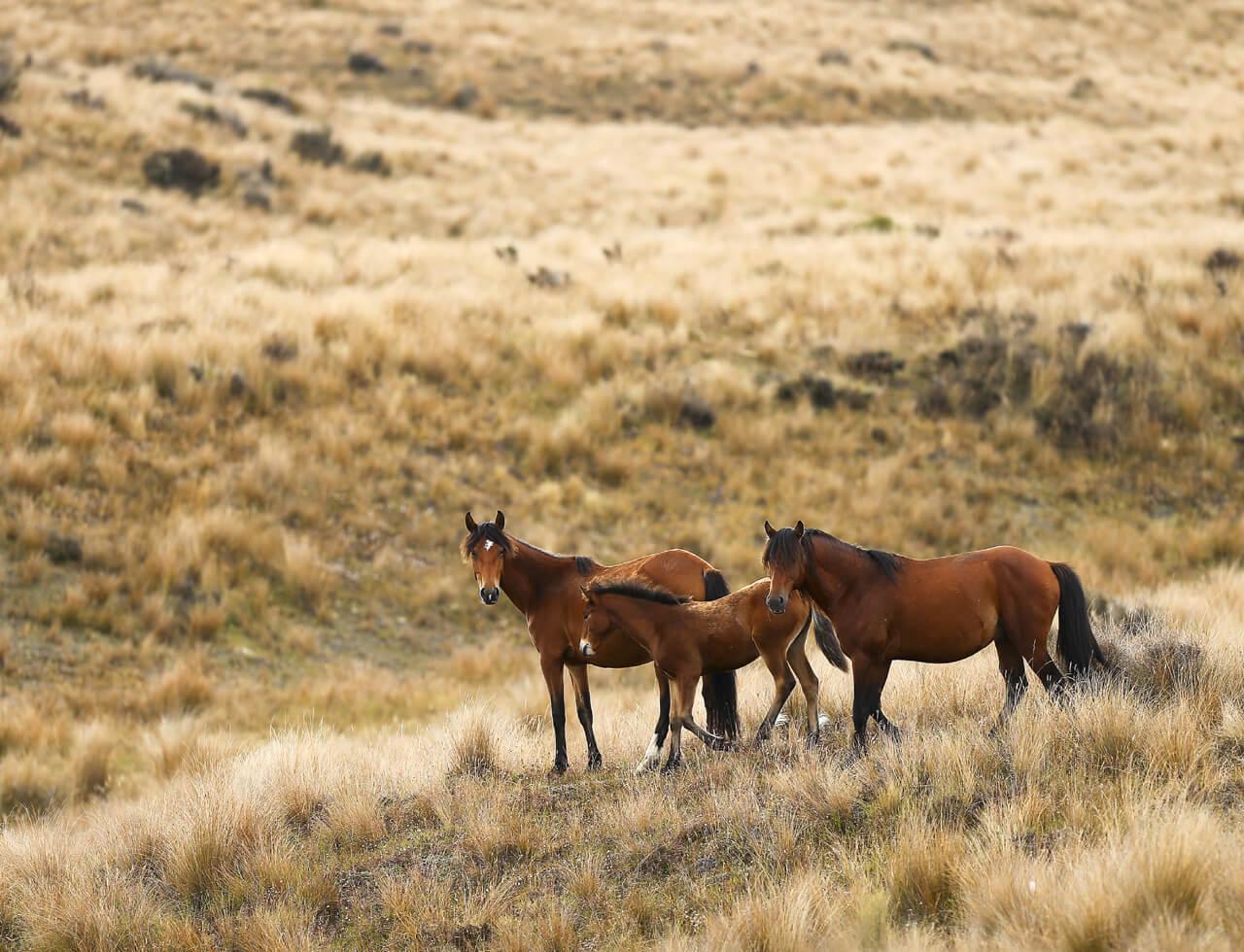F ROM THE AUTHOR OF THE BESTSELLING BOOK F OR THE L OVE OF H ORSES , COMES AN EPIC NEW JOURNEY TO RESCUE WILD K AIMANAWA HORSES FROM THE BIENNIAL CULL .
Follow television stars Vicki, Kelly and Amanda Wilson on their quest to train 10 wild, difficult and sometimes dangerous horses for competition in the first national Stallion Challenges through to the Horse of the Year.
Can the Wilsons change these horses fate? Share the heartbreak, the pain, the elation and the success as they take on their greatest challenge yet.
This book is dedicated to the 17-year-old stallion Major KH you captured our hearts during your short time with us. Not only did you inspire a new generation to love wild horses, but you were also the inspiration for the Stallion Challenges. May you rest in peace knowing that your legacy lives on in the lives of countless horses that, without these challenges, would have been destined for slaughter.
CONTENTS
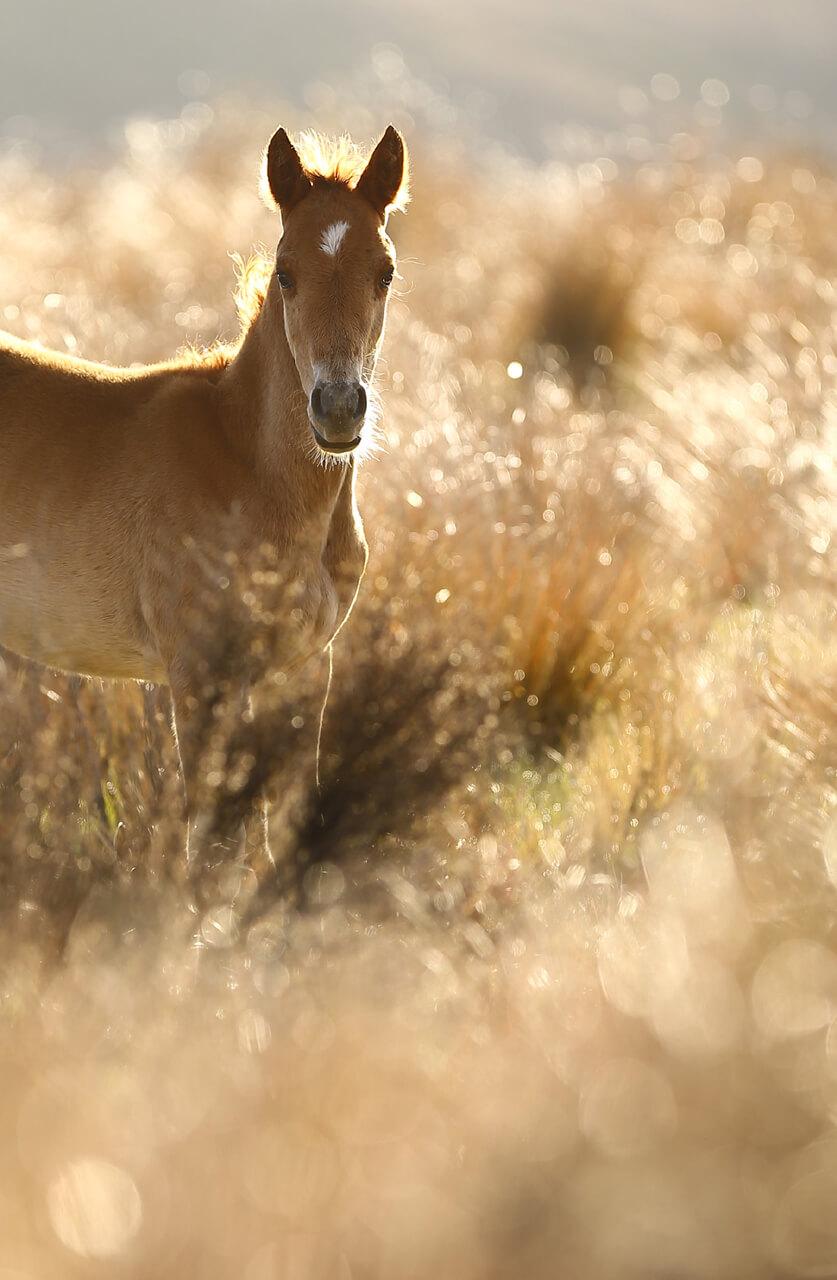
As little girls, we Vicki, Kelly and Amanda Wilson developed a love for horses, and over the years our passion hasnt faded. Our childhood dreams have not merely come true, but have been well and truly surpassed, from showjumping at the highest levels right through to taming wild horses and travelling the world.
We grew up with very little, only able to afford the cheapest and often most difficult of ponies. Looking back, it is hard to believe how far our love of horses has taken us, and yet, at the same time, how little has changed. We still ride bareback, although its now for fun rather than out of financial necessity, and we still re-home and rehabilitate horses that many others wouldnt waste their time on. In contrast to our humble beginnings, we now have some of the most competitive horses in New Zealand. We travel the country during the summer months, with Vicki and Amanda competing in the Grand Prix and World Cup classes, while I simply ride and compete for fun. The knowledge and experience we have gained over the years wouldnt have been possible without the support of our parents, who share our love of horses and have always encouraged us to live our dreams.
Of the three of us, Vicki is the most singularly focused on her equestrian dreams. She is one of the most competitive riders in the country and has also competed internationally with much success. In the coming years she aims to represent New Zealand at the highest levels. Amanda also showjumps professionally at the top level, and is equally passionate about writing, filming and property development. She is currently working on her debut novel and a second documentary film. Unlike my sisters, for me showjumping is only a hobby, but over the years my work has also come to revolve around horses I am a freelance designer and photographer for the New Zealand and international equestrian industry, and, more recently, a best-selling author. I am currently working on my third book, about our work with the American Mustangs.
While Vicki, Amanda and I each have our own individual talents, we complement each other well when we work together. Almost a decade ago we started our family business, Showtym Sport Horses, which incorporates our team of showjumpers, the Showtym Holiday Camps for young riders, Showtym Adult Retreats and Showtym Far Northern Adventures. Our underlying passion is to increase horse welfare on a global scale, and we are committed to starting at a grass-roots level educating riders so that their horses have a better future.
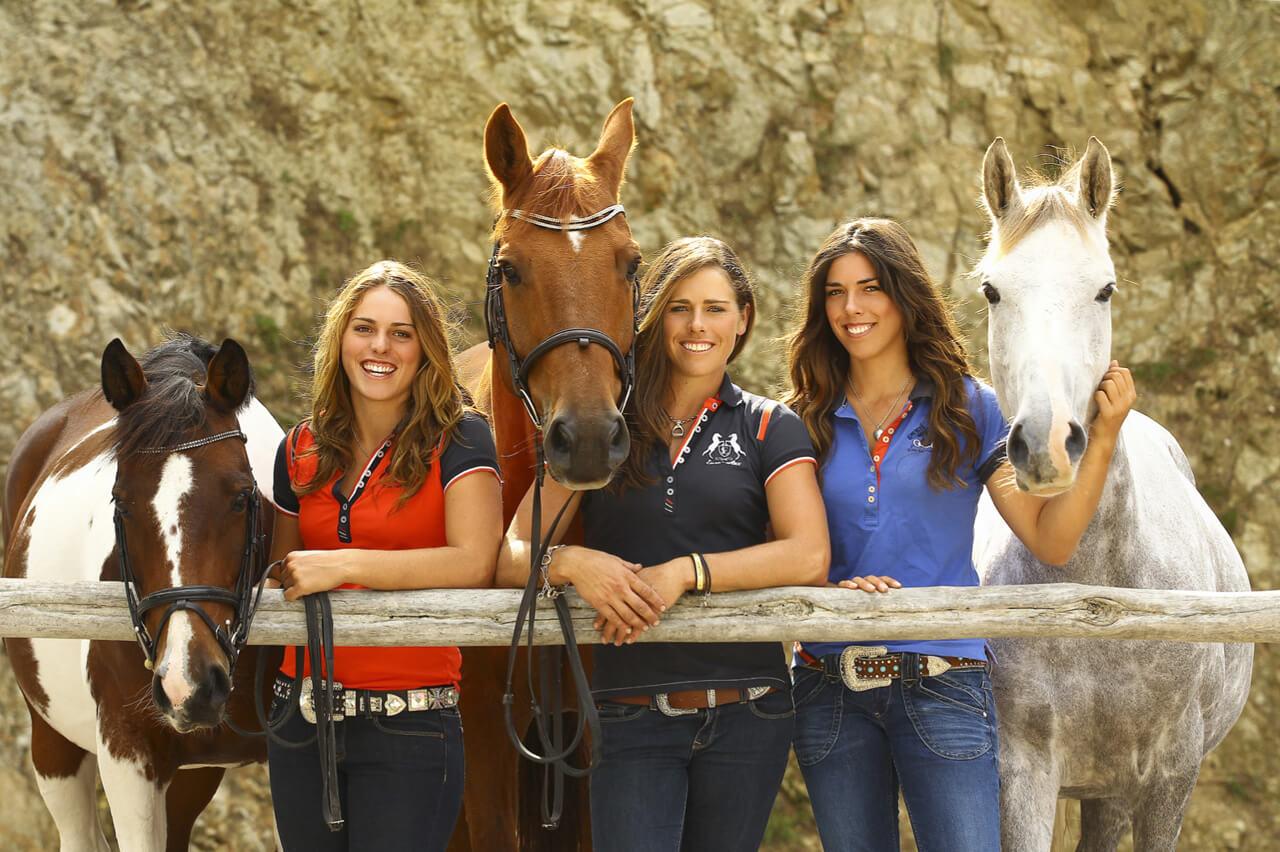
Amanda and Showtym Viking, Vicki and Showtym Cadet MVNZ and Momento (our Kaimanawa mare from the 2012 muster) and me.
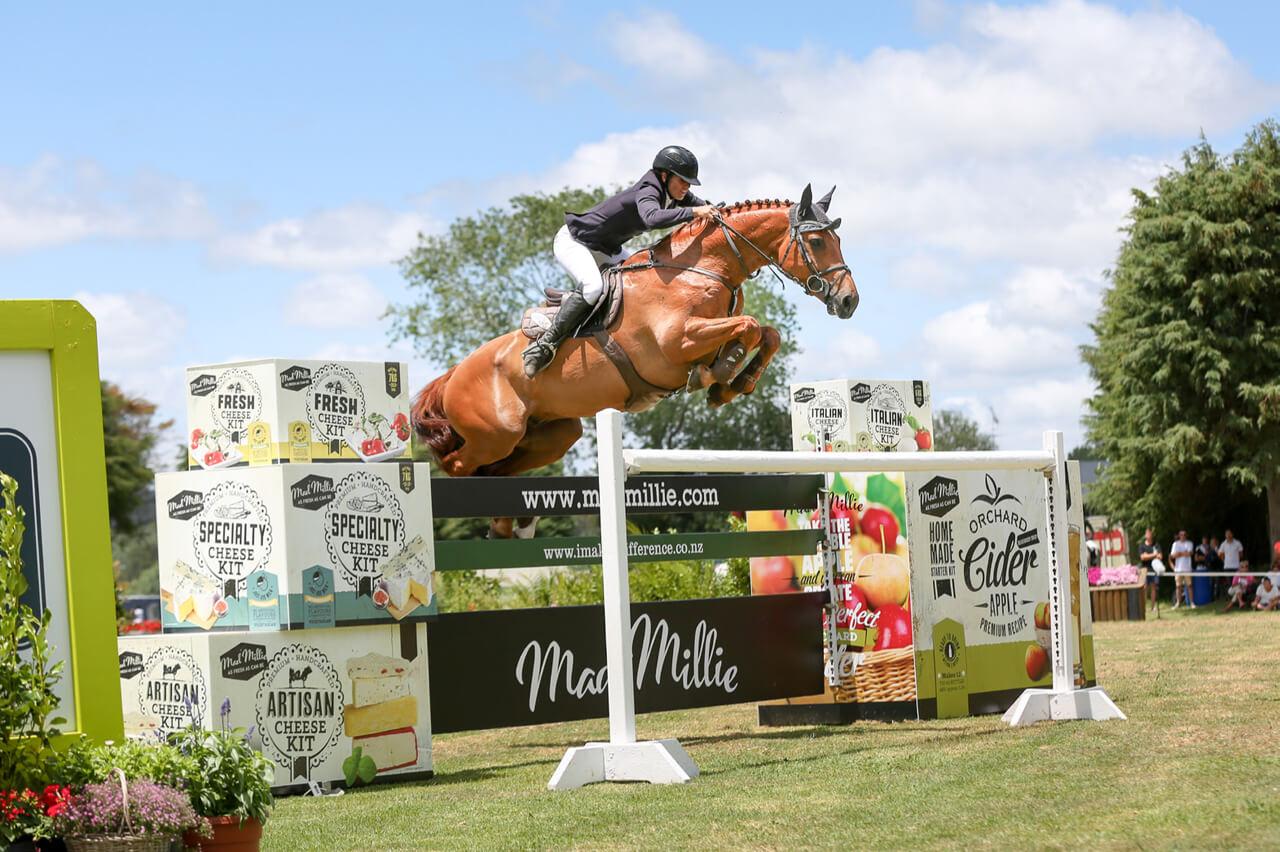
Vicki and Showtym Cadet MVNZ competing in the World Cup series.
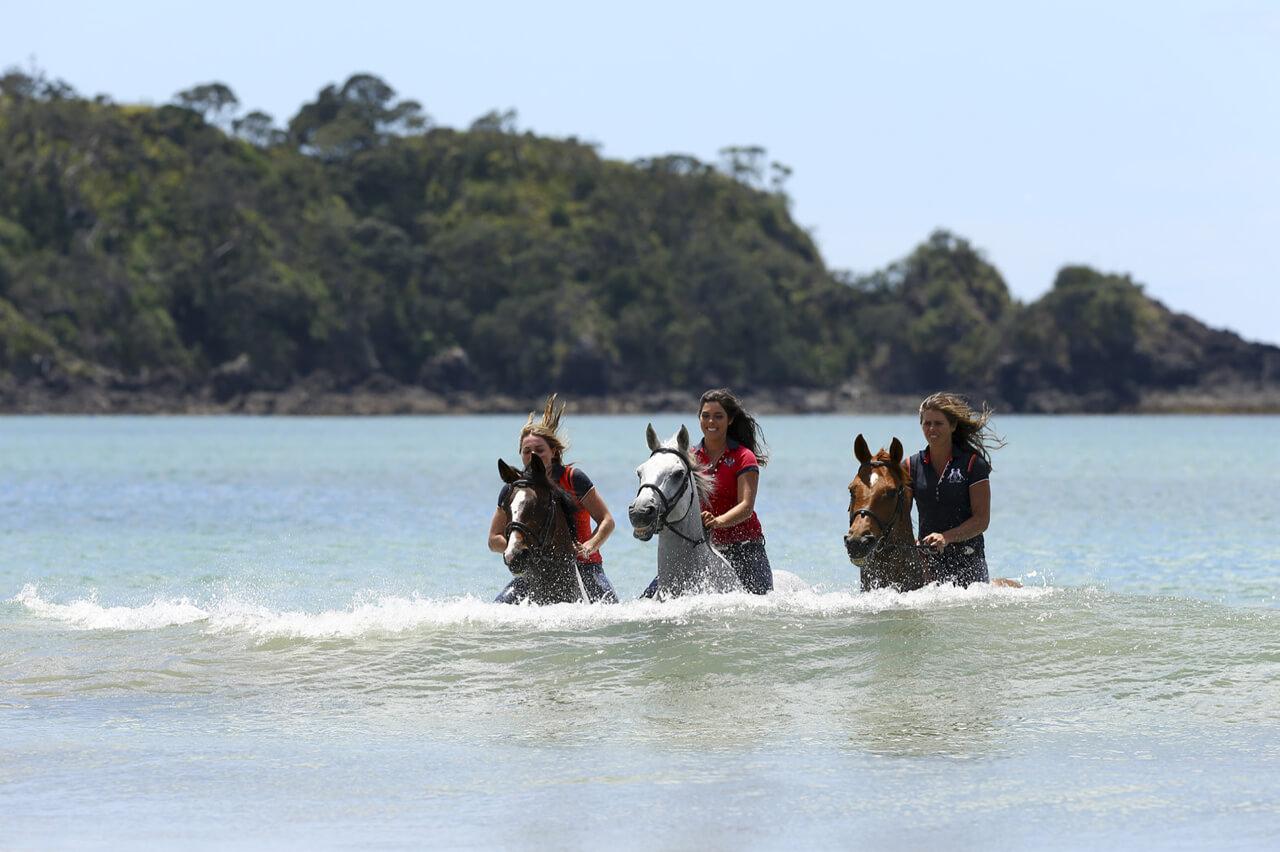
Riding our showjumpers at the beach.
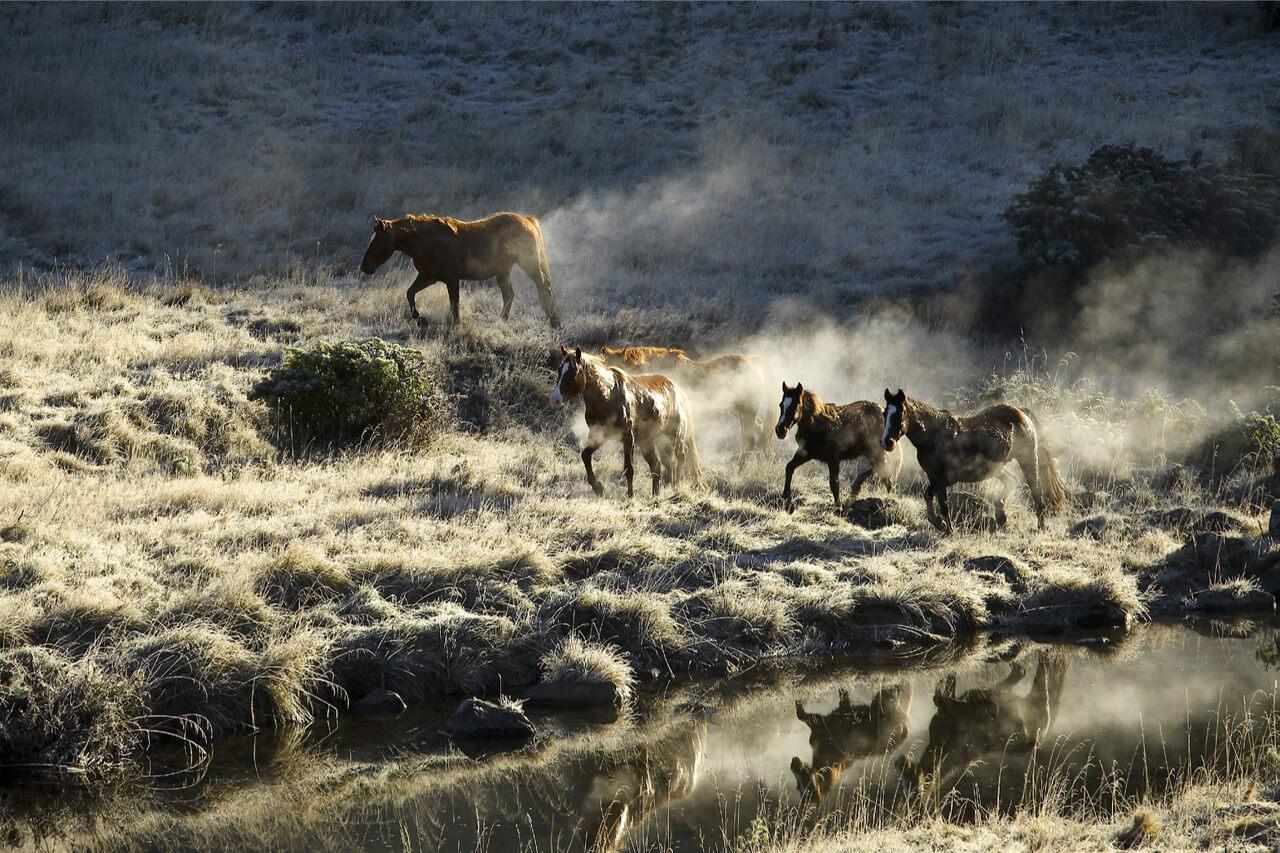
From the moment we first saw the Kaimanawas in the wild, we became invested in their ongoing survival.
Many of our champion showjumpers are horses that others had given up on they were difficult, misunderstood, injured or ill-treated and time and time again these horses have returned tenfold the effort and love we have invested in them. Most importantly, they enjoy life and thrive in the competition arena. They dont jump because they have to but because they want to, and its proved to be a winning formula.
But perhaps one of the most rewarding aspects of our lives is our work re-homing the wild Kaimanawas; horses that would otherwise be destined for slaughter following the biennial government musters. From the moment we first saw the wild Kaimanawa herds in 2012 they have captured our hearts, and since then we have saved many wild horses.
One Kaimanawa that is particularly special to us is the 17-year-old stallion Major, whose journey to domestication was perhaps the most inspiring weve ever seen, and defied the popular belief that older stallions are too difficult to train. Although, tragically, we lost him just five months after he was mustered, his legacy lives on in 2014, Kaimanawa Heritage Horses (KHH) launched the nations first Kaimanawa Stallion Challenges in his memory. In its first year, this national training initiative ensured the survival of every stallion suitable for re-homing; horses that in previous years had been unfairly slaughtered due to a lack of interested people with the experience needed to save them.
In 2014 my first book, For the Love of Horses, was published and was instantly a best-seller; that same year, Television New Zealand (TVNZ) commissioned a television series called Keeping up with the Kaimanawas, which followed me and my sisters taming our wild horses from the 2014 muster. What started out as an unassuming project has catapulted us firmly onto the world stage, because of our innovative approach to raising awareness about the plight of wild horses, and has unintentionally made us public figures; sometimes it seems so far-fetched that we shake our heads in disbelief.
When we were first approached about a television series we quickly brushed it off we didnt want to be in the public eye any more than we had to, and we didnt need the distraction of cameras following us around while we were trying to focus on taming wild horses. But the more it was discussed the more we realised that television exposure could greatly benefit the wild herds and would ensure that they had the support of the public for another generation. It was something worth considering.
Questions still remained. For example, did the benefits to the horses long-term survival outweigh the negatives of the unwelcome invasion of our privacy? We knew that, if we agreed to do the series, our lives wouldnt be the same again, and so our decision had to be for the right reasons first and foremost, it had to be for the good of the horses.

